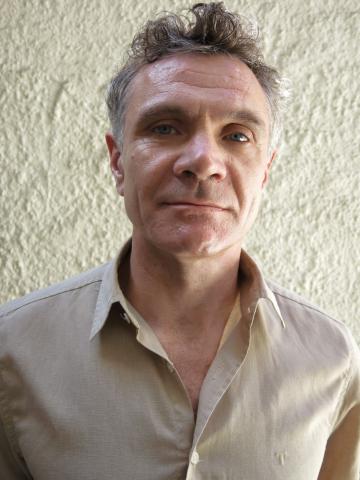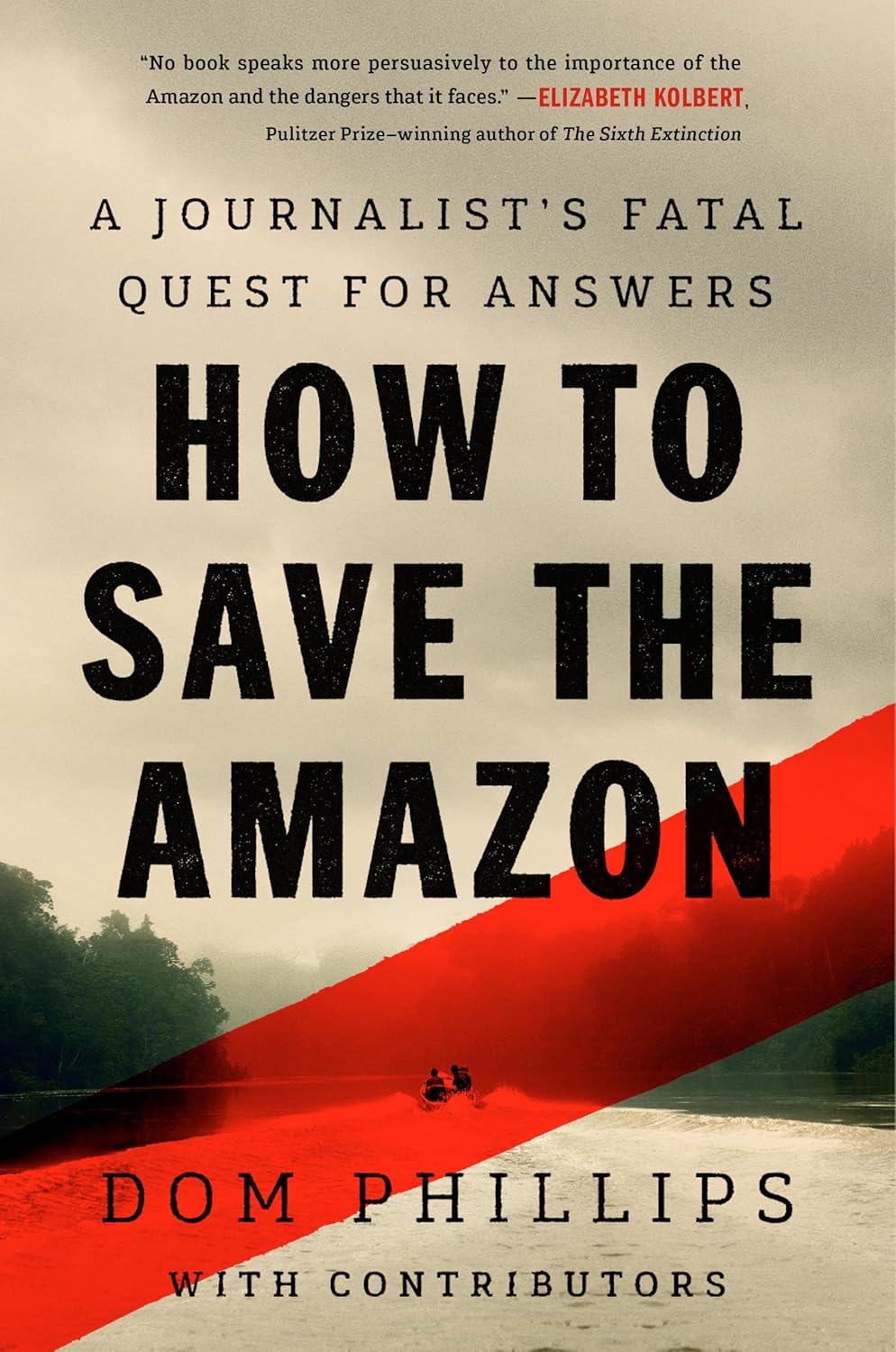
How to Save the Amazon: A Journalist's Fatal Quest for Answers
The project:
In June 2022, Dom Phillips was shot dead with environmentalist Bruno Pereira while on his final research trip for How to Save the Amazon, a deeply reported, character-driven travel book on the destruction faced by the world’s most important rainforest. Recognizing the significance of this project, leading writers covering the Amazon have come together to finish Phillips’s book. The group includes Jon Lee Anderson (The New Yorker), Eliane Brum (author and cofounder of Sumaúma), Andrew Fishman (The Intercept Brazil), Tom Phillips (Latin America correspondent for the Guardian) and Davi Kopenawa Yanomami (author of The Falling Sky), and is helmed by journalist Jonathan Watts. This collaborative project will honor Phillips’s vision and his memory, offer up potential solutions that incorporate indigenous voices and experience, and insist that journalists will not be silenced.
From How to Save the Amazon:
Elias Barros da Silva put on a wide-brimmed straw hat and led the way down the hill to show us a big, fenced-off area near a pond full of high, skinny trees and luxuriant foliage. Once pasture, it had been overtaken by the rough undergrowth people here called junqueira. First Elias sowed more grass for cattle. Then he planted trees. Now it was beginning to look like a forest again, and Elias, with his shy smile and gentle demeanor, was quietly proud of it.
He listed the trees—including andiroba, mahogany, amarelão, and jatobá—that now grew there, while fingering the blade of his machete. “There are many species here,” he said. Beside it was his agroforestry patch, a small plantation full of fruit trees. “There is a spring, just there,” he said.
We sat on a log in the waning afternoon sun. Now in his late 30s, Elias was the youngest of seven children and was a toddler when his father Raimundo abandoned his young family. Elias had never met his father. For three years Elias processed charcoal in intense heat in round earthen huts. Not that far from Marabá there was a highly pollutant pig iron industry that depended on the fuel. “Charcoal brought in a lot of money,” Elias said. He carried on producing it after he bought 15 hectares from his father-in-law, even though, in effect, this meant he and others were burning their own forest. “Things were always being done that were wrong,” he said.
In 2009, under the Action Plan for the Prevention and Control of Deforestation, a major police operation called Arc of Fire targeted the region. Elias and his charcoal colleagues resolved to cut their losses. “We decided to invest in agriculture and raising cattle,” he said. Now he was selling his bananas from quality seedlings provided by Brazil’s agro-tech research organization, Embrapa, and planned to keep the cattle for their cheese and milk. “It’s a very secure source of income,” he said. We finished the afternoon on the shady terrace of his simple breeze-block house, overlooking the earthen yard. Elias served hot, sweet coffee in a flask and slices of his renowned home-made cheese—rich, salty, delicious.
As Elias talked about his fruit trees, it seemed that here the wheel was beginning to turn a little, that some who cleared the forest were willing to start reversing that process—provided they could get help to do so and still produce enough to live on. It looked to me like a little success story, a ray of hope glinting off the açaí palms, in a region that desperately needs them.
On the highway back to Marabá, I passed fires burning on the side of the highway, fires like those that increasingly rage through the Amazon in dry seasons when farmers clear forest. Flames crackled and smoke billowed on dry scrub and undergrowth. Nobody paid any heed as cars and trucks hurtled past.
The grant jury: Dom Phillips’s reporting on ecological depredations in the Amazon, completed before his murder in the field, demonstrates impressive levels of access and a deep moral curiosity. It's rare to encounter travel writing that truly shows the reader something they haven't seen before; the sense of discovery—and, inevitably, peril—is palpable. It is galvanizing to see this cohort of investigative journalists come together to deliver on Phillips’s vision, and, crucially, to include first-hand indigenous perspectives and their potential solutions. This project speaks not only to the threatened territory of the Amazon but the vulnerable territory of freedom of speech.
British journalist Dom Phillips (1964-2022) was awarded an Alicia Patterson Foundation Fellowship in 2021. He was also the 2021 Cissy Patterson Environmental Fellow. His work was included by Greenpeace’s Unearthed in its Best Environmental Journalism. Phillips was a regular contributor to the Guardian, and his coverage with Reporter Brasil of the 2019 Amazon “Fire Day'' was nominated for the Gabo Prize, Latin America’s premier journalism award.
Selected Works
